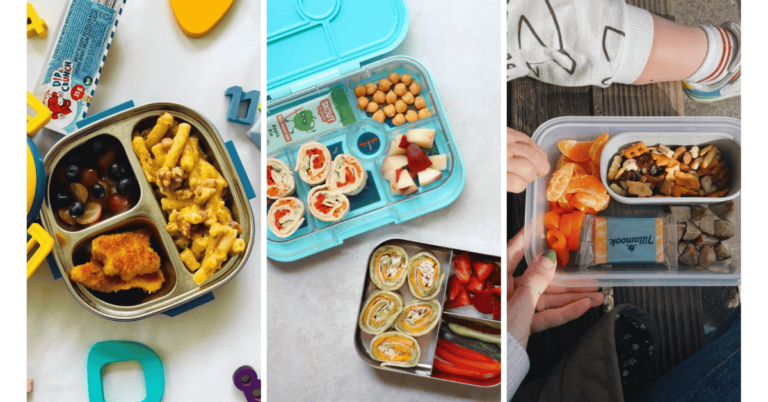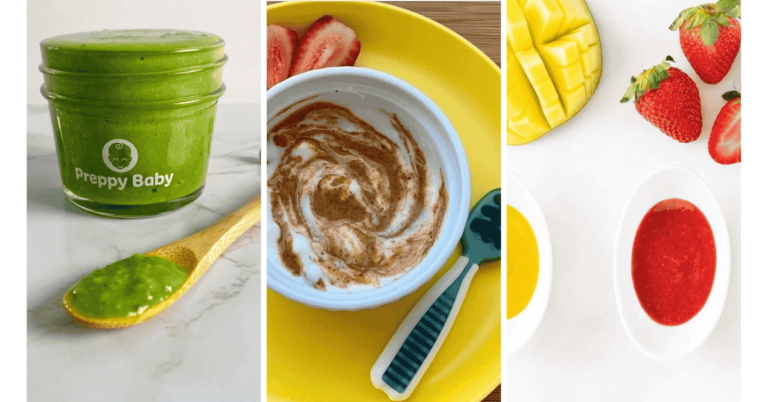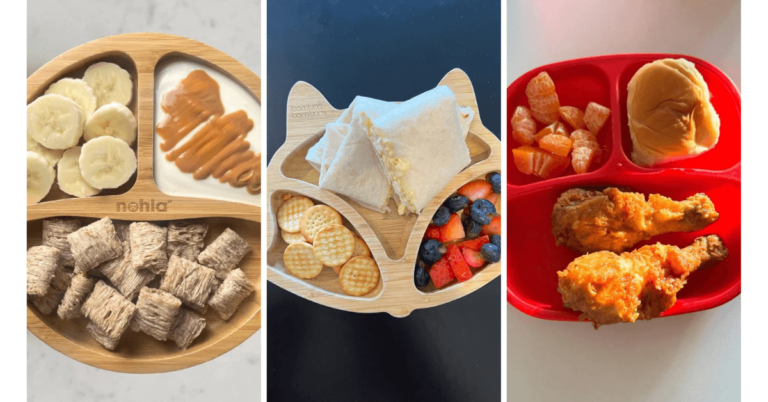Foods to Help Kids Sleep Better at Night

A good night’s sleep is crucial for kids, affecting their mood, focus, and overall health. Often underestimated, the foods your child eats throughout the day can significantly impact their quality of sleep. Certain foods contain sleep-inducing nutrients that can help kids relax, drift off faster, and stay asleep longer.
This guide will explore foods that benefit children’s sleep patterns, why they work, and some practical tips on incorporating them into your child’s nightly routine.
The Role of Diet in Promoting Sleep
Sleep and diet are interconnected. The right foods can regulate hormones like melatonin and serotonin, which play key roles in sleep. Melatonin helps control your natural sleep-wake cycle, while serotonin promotes calmness and relaxation. Other nutrients, such as potassium and magnesium, can relieve muscle tension and help the body wind down at the end of the day.
By strategically introducing sleep-friendly snacks, you can set your child up for restful, uninterrupted slumber.
Foods Rich in Melatonin
Melatonin is also known as the sleep hormone. Adding melatonin-rich foods to your child’s diet can naturally promote better sleep.
Cherries
Cherries, particularly tart cherries, are one of the few natural sources of melatonin. A handful of fresh cherries or a small glass of cherry juice can serve as a perfect sleep-enhancing snack.
How to serve
- Offer a handful of fresh cherries as a post-dinner snack.
- Blend tart cherry juice with water for a refreshing bedtime drink.
Oatmeal
Oatmeal isn’t just for breakfast! It contains melatonin and essential minerals like magnesium, which contribute to relaxation and better sleep.
How to serve
- Prepare a small bowl of warm oatmeal before bed. Consider topping it with fresh fruit for added flavor.
- Use milk instead of water for extra protein and calcium.
Protein-Packed Snacks
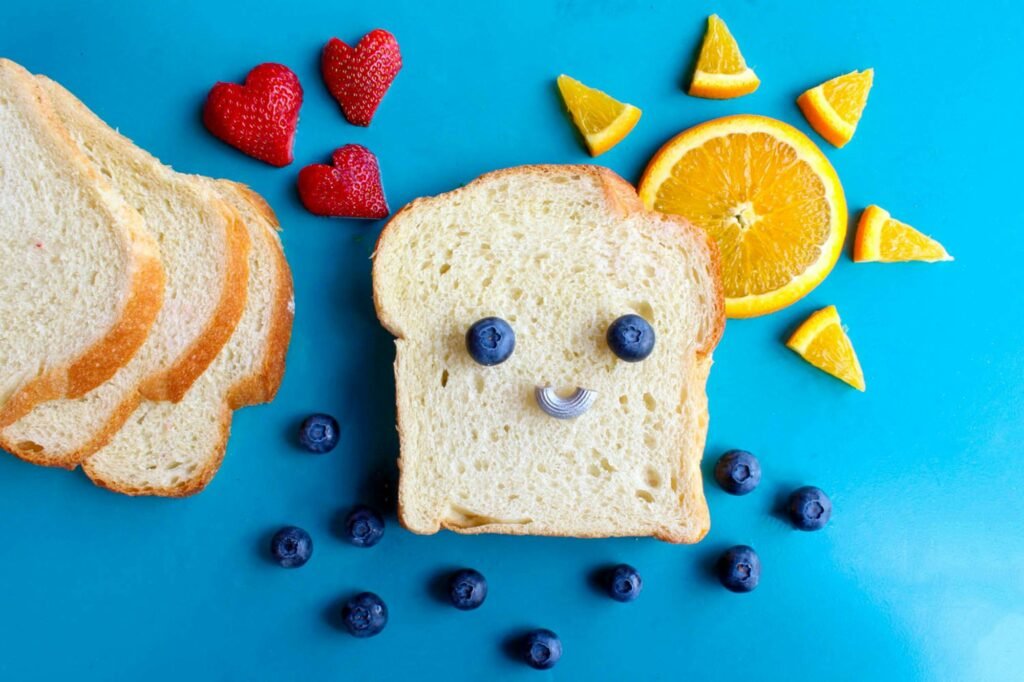
Protein can keep hunger at bay overnight, preventing sleep interruptions caused by growling stomachs. Choose protein-rich foods that also include nutrients promoting sleep.
Cheese and Crackers
Cheese contains tryptophan, an amino acid that supports the production of melatonin. Pairing it with whole-grain crackers provides a balanced late-night snack.
Nut Butter
Peanut, almond, or cashew butter is loaded with healthy fats and protein. It contains magnesium to aid muscle relaxation.
How to serve
- Spread nut butter on whole-grain toast or apple slices.
- Try small portions to avoid an overly filling snack.
Eggs
Eggs are another excellent source of tryptophan. A boiled egg before bed is nutritious, simple, and effective.
Pistachios
A handful of pistachios is more than just a tasty treat. Packed with protein, magnesium, and vitamin B6, they are a sleep powerhouse.
How to serve
- Offer shelled pistachios as a quick bedtime snack. Ensure they are unsalted for a healthier option.
Serotonin Boosting Foods

Serotonin works alongside melatonin to help the body and mind relax. These serotonin-boosting foods can make bedtime much smoother for kids.
Pumpkin Seeds
Pumpkin seeds are rich in tryptophan, critical for serotonin production. Additionally, they provide magnesium, which helps calm the nervous system.
How to serve
- Roast pumpkin seeds for a crunchy snack or sprinkle them over yogurt or oatmeal.
Edamame
Edamame, or young soybeans, contain isoflavones that increase serotonin levels.
How to serve
- Boil edamame and lightly sprinkle with sea salt.
- Serve them as part of dinner or as a late-night snack.
Potassium for Muscle Relaxation
Bananas
Bananas are a natural source of potassium, which helps relax muscles and prevent cramps that could disturb sleep. They also contain magnesium and tryptophan, making them ideal for bedtime.
How to serve
- Serve sliced bananas with warm milk.
- Blend a banana smoothie using milk or yogurt as a calming bedtime drink.
Vitamin-Rich Options
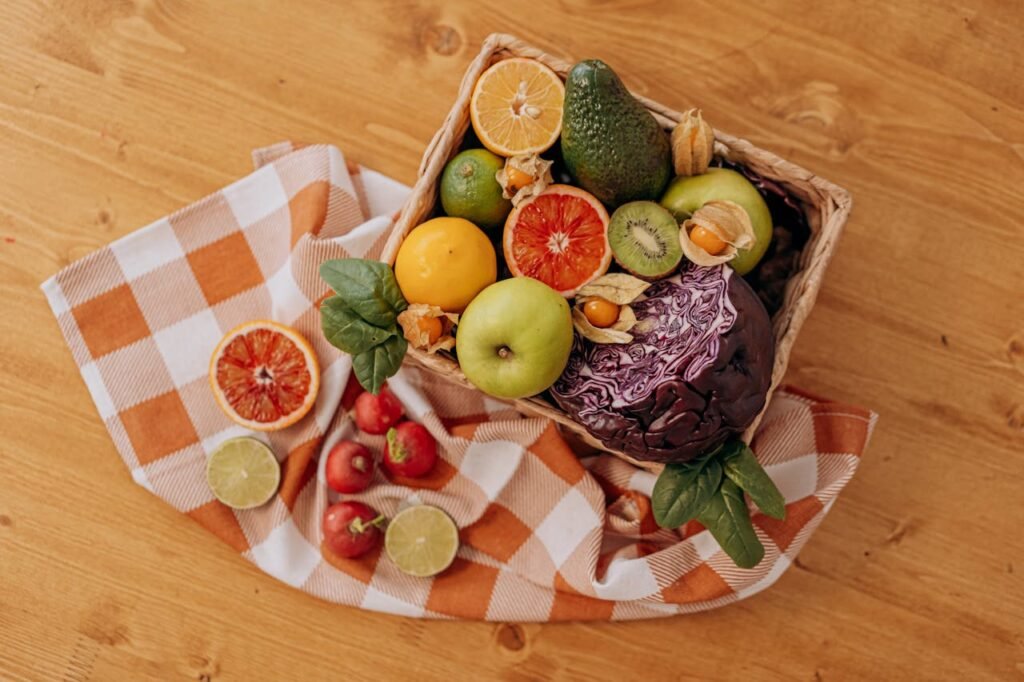
Kiwi
Kiwi has been proven to enhance sleep quality, thanks to its combination of serotonin and vitamins C and E. A study has even shown that eating two kiwis an hour before bed can improve sleep duration and quality.
How to serve
- Peel and slice kiwis for a quick snack.
- Add kiwi slices to a bowl of yogurt or oatmeal.
Tips to Incorporate Sleep-Friendly Foods
- Keep it simple: Offer just one or two options before bed to avoid overwhelming your child with choices.
- Timing matters: Serve snacks at least 30 minutes to an hour before bedtime. This helps avoid the discomfort of a full stomach when lying down.
- Avoid sugar: High-sugar snacks can spike energy levels, making kids less likely to settle down.
- Portion control: Keep portions small. Eating too much can have the opposite effect and disrupt sleep.
- Consistency is key: Incorporate these foods into their routine gradually, making them familiar and comforting staples at night.
Helping Kids Sleep Better Starts With Their Diet
The foods your child eats can have a significant impact on their sleep habits. By offering melatonin-rich cherries, protein-packed snacks like cheese and nut butter, serotonin-boosting pumpkin seeds, or vitamin-packed kiwi, you’re laying the groundwork for better nighttime routines.
Ultimately, small changes to their diet can lead to big improvements in their sleep. Give these foods a try, and watch as bedtime transforms into a much easier task—for both you and your kids!
Looking for more family-friendly diet tips? Subscribe to our newsletter for expert advice!

